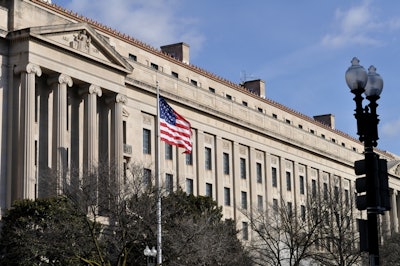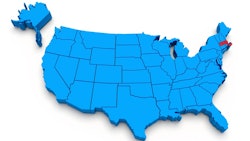
As it turns out, the security net that legal medical marijuana business have been falling back on—the belief that the U.S. Justice Department could not spend funds prosecuting medical cannabis businesses legal under state law—may not actually be a security net at all. Marijuana.com today reported that the "Justice Department Admits Misleading Congress on Marijuana Vote."
According to the article:
"Justice Department officials misinformed members of Congress about the effects of a medical marijuana amendment being considered by the U.S. House of Representatives, according to an internal memo obtained by Marijuana.com.
The amendment, which lawmakers approved in May 2014 by a vote of 219-189 despite the Obama administration’s objections, is aimed at preventing the Department of Justice from spending money to interfere with the implementation of state medical cannabis laws."
The long story short: The memo stated the Justice Department's legal position that federal officials are limited in prosecuting "state or state officials for implementing" medical marijuana laws or for issuing licenses to what the officials deem to be legal medical marijuana businesses, reports Marijuana.com, but it does not prevent the Federal Government from prosecuting medical marijuana growers or dispensaries.
Not all legislators believe this interpretation to be true, however. "No reasonable person would arrive at this conclusion after reading the amendment and listening to the debate,” Rep. Sam Farr (D-CA), one the measure’s lead sponsors, told Marijuana.com. “This memo uses a lot of legal jargon to twist the issue but Congress was clear: Stop prosecuting medical marijuana patients and their providers. There was no confusion in Congress when we passed the amendment last year.”
Marijuana.com also reported, however, that "Patrick Rodenbush, a Justice Department spokesman, disagrees. 'Consistent with the Department’s stated enforcement priorities, we don’t expect that the amendment will impact our ability to prosecute private individuals or private entities who are violating the Controlled Substances Act,' he told Marijuana.com in a statement."
Mason Tvert, communications director for marijuana-legalization advocacy and lobbyist organization Marijuana Policy Project, told Cannabis Business Times, "The measure was clearly intended to prevent the Justice Department from interfering in states that have adopted medical and adult-use marijuana laws. Members who supported it discussed why they wanted to prevent the federal government from enforcing federal marijuana laws in those states, and those opposed expressed a desire to allow such enforcement."
Tvert added, "This is not the first time that law enforcement officials have lied and exaggerated in order to influence marijuana policy, and it surely won’t be the last. We’re pleased to see the members who supported the amendment are fighting back and clearly expressing what they intended when they voted for it."
Read Marijuana.com's full report here.
Feature photo: © Cosmopol | Dreamstime.com - Washington Justice Department Photo



























